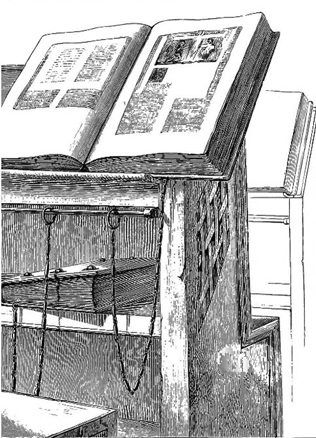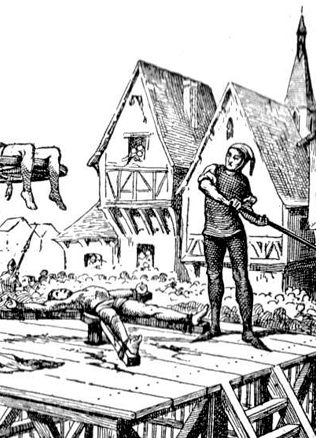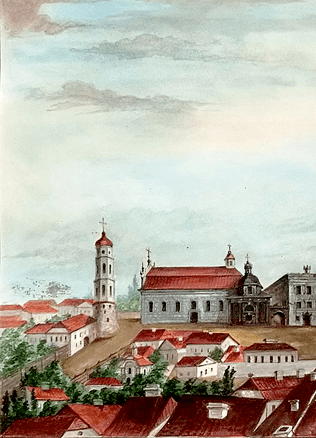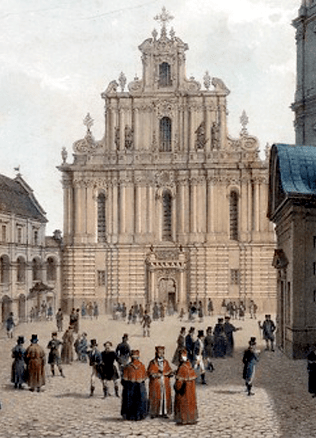Stryjkowski vs. Guagnini: the First Plagiarism “Case” in Lithuania
Alessandro Guagnini (1538–1614) apparently arrived in Poland in 1558, when he was still very young. He was born into the family of poor nobles in Verona, Italy. He lived in Lithuania and Poland for many years as a mercenary and took part in wars with Muscovy. He was promoted to knights for his military merits during the Sejm in Lublin in 1569 and was granted the citizenship of the Polish and Lithuanian Commonwealth in 1571 through the intercession of Hrehory Chodkiewicz, the Grand Hetman of Lithuania. His merits were particularly outstanding when he was the commandant of the Vitebsk Castle. It was in Vitebsk that Maciej Stryjkowski, a historian, writer and poet, served for almost two years under the direction of Guagnini.
Plagiarist charged in verse
Around 1570–1573, Stryjkowski wrote several treatises but left for Turkey in 1574 leaving his manuscripts behind and accessible to Guagnini. The latter published The Description of the European Sarmatia (Lat. Sarmatiae Europeae descriptio) in 1578 in Krakow under his own name. Stryjkowski accused his former superior of theft. On the margins of his versified autobiography published in The Chronicle in 1582 in Konigsberg, Stryjkowski says: “The Description of the European Sarmatia that one Italian has appropriated and published under his own name, although he can not even read (such is the courage of the wicked who are called malaperts), – so he published it in 1576.” That is apparently a mistake, because the first known publication of The Description was in 1578.
Stryjkowski repeats his charges in the versified preface to The Chronicle and adds: “Anyone who has a wish to check, should ask him [Guagnini] about the way the things are done and what does he [Guagnini] know about that, and how does he explain the origins of any nation and what does he know about the feats of the rulers and about the arrangement of provinces and areas within them.”
The Description of the European Sarmatia is a historical and geographical work of mixed nature. The book tells the history of Poland, Lithuania and Prussia from legendary times until the 16th century and provides the characteristics of provinces of these states as well as the geographical descriptions of Livonia, Muscovy and the Tatar Khanate. One of the chapters of the book goes under the caption On the Tyranny of the Grand Duke of Moscow Ivan Vasilievich. While comparing it with the surviving texts by Stryjkowski, researchers find many similarities. In his Chronicle, Stryjkowski says he has written the work On the Tyranny of Muscovy.
The truth almost won
The claims of the “historian and poet” were recognized rightful. In his privilege issued 14 July 1580 in Vilnius, Stephen Báthory banned publishing Stryjkowski’s Chronicle, The Description of the European Sarmatia and the poem The Herald of Virtue in Poland and Lithuania without author’s consent for ten years. Anyone breaching the regulation would face a fine of 600 Hungarian golden coins. The sum had to be divided in two equal parts, one for the state coffers and another for the author. The privilege was published in The Chronicle of 1582.
The ruler’s approval was obligatory before publishing any historical work.
Everything becomes clear bearing in mind that Stryjkowski was in Königsberg in 1580–1581 where he managed the issues around the release of his Chronicle.
The date indicated in the royal privilege is a little unsettling, though. In 1580, Stephen Báthory stayed in Vilnius between the beginning of April and the middle of June. On July 14, he was already in the military camp at the town of Chashniki, busy planning the campaign against Velikiye Luki. Stryjkowski was in Samogitia or on his way to Königsberg at that time. The discrepancy can be explained if we presume that the king signed the privilege in the camp near Chashniki, but his secretaries had prepared the document earlier. It means that Stryjkowski received the privilege via someone later. We are compelled to think that someone has helped Stryjkowski to get the privilege, because there are no historical sources saying that the “historian and poet” visited Vilnius in 1580. Melchior Giedroyc, the bishop of Samogitia and Stryjkowski’s patron, could be that “someone,” because Giedroyc took care about the publishing of The Chronicle. He had an easier access to the ruler, and he made use of it in May 1580 inside Vilnius Cathedral where he presented Stephen Báthory a sword and a cap he had received from the Pope. Augustyn Rotund, the advocatus (mayor) of Vilnius and the secretary of the king, also should be remembered because he was favourable to Stryjkowski and perhaps was the one who wrote the text of the privilege.
No reaction whatsoever
Some researchers overestimate the importance of the privilege. The document does not mention Alessandro Guagnini’s name at all in the first place. Secondly, Stephen Báthory accepted Guagnini’s present during the campaign against Velikiye Luki, the copy of his Description which the king eventually sent to Ivan the Terrible so that the tsar can find out what the Europeans think of him.
Historical sources say nothing about Guagnini’s reprobation or demotion.
The Italian was valued as an experienced officer and for his military merits. In war time, that was the decisive argument.
Alessandro Guagnini took part in the military campaigns against Muscovy in 1580 and 1581. He settled in Krakow after quitting the military service. He lived longer than Stryjkowski, who died around 1590. (And what a coincidence! It was roughly the time when the ban on unauthorised publishing of his works lapsed!) Guagnini published the revised and complemented variant in Polish of “his” book in 1611 in Krakow (translated by Marcin Paszkowski, a petty Polish nobleman). Following the example of Stryjkowski’s Chronicle, Guagnini dedicated separate parts of his book to the most influential aristocrats of Poland and Lithuania, including Mikołaj Zebrzydowski, Mikołaj Krzysztof Radziwiłł the Orphan, Lew Sapieha, Jan Karol Chodkiewicz and others. The new variant the book titled The Chronicle of the European Sarmatia (Kronika Sarmacyey europskiey) the Italian refers to Stryjkowski whom he emphatically calls “the poet” or “the old poet” saying nothing about his achievements in history. Keeping in mind the overall level of historiography at that time, that was not a considerable transgression.
Therefore, Alessandro Guagnini did wrong when he plagiarised Stryjkowski’s work. However, by publishing his Description of the European Sarmatia in Latin, he contributed to making Poland and Lithuania more widely known in Europe. The propagandist chapter against tsar Ivan the Terrible proved to be particularly inspiring. This is why we should not only use negatives when evaluating Guagnini as a historian. Scholars created the “black legend about Guagnini” in the 19th and 20th century. Researchers have recently been offering a more temperate attitude to him.
Literature: Baltų religijos ir mitologijos šaltiniai, t. 2, Vilnius, 2001, p. 467–498.
Kęstutis Gudmantas



